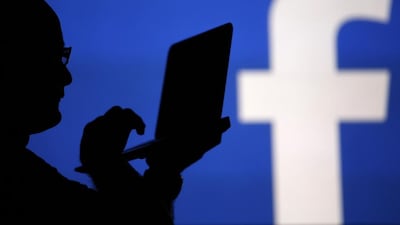Facebook has significantly overhauled its operations in response to security flaws that came to light in the past 12 months, but many of the deeper rooted issues could take years to fix, embattled chief executive and chairman Mark Zuckerberg said.
“We've fundamentally altered our DNA to focus more on preventing harm in all our services,” Mr Zuckerberg wrote in a public Facebook post on Friday.
“To be clear, addressing these issues is more than a one-year challenge. But…we’ve now established multi-year plans to overhaul our systems and we're well into executing those roadmaps,” he added.
Mr Zuckerberg said the US-listed social media company now has 30,000 people working on safety and security following a recruitment drive in the summer and invests “billions of dollars” on security each year.
Facebook has improved its processes for identifying fake accounts and any potential campaigns for election interference, and built artificial intelligence (AI) systems to identify and remove terrorism-related content. It has also amended its software development platform to limit access to user data.
“In the past we didn’t focus as much on these issues as we needed to, but we’re now much more proactive. I’m proud of the progress we’ve made,” Mr Zuckerberg wrote.
Facebook, which also owns WhatsApp and Instagram, has had a calamitous 2018 with shares down 24.5 per cent in the year-to-date as of December 29. The company has faced numerous reputational and security crises including the mammoth data breach evidenced in the Cambridge Analytica scandal, and attempts by third parties to use the social media platform to manipulate national elections in Russia and Bangladesh and incite violence against Rohingya Muslims in Myanmar.
Earlier this month, Mr Zuckerberg was forced to defend Facebook against emails showing the social media giant offering Netflix and other popular apps preferential access to people’s data even after it had tightened its privacy rules.
Facebook's market capitalisation almost halved to $383 billion in 2018 after years of uninterrupted growth, while its chief executive lost $17.4bn of his net worth. Criticism reached a peak over the Cambridge Analytica case, during which time Mr Zuckerberg testified before US Congress and said one of his “greatest regrets” was the company’s failure to quickly identify the Russian fake news operation in 2016.
British-based Cambridge Analytica, which worked for US President Donald Trump’s election campaign, was shut down this year after further revelations about its possible role in meddling with elections overseas.
______________________
Read more:
The ripples of Moscow's meddling can be seen around the globe
Mark Zuckerberg defends Facebook in new data breach controversy
Shareholders call on Facebook's Zuckerberg to step down as chairman
______________________
Last week, Facebook and Twitter both removed fake news pages linked to supporters of Bangladesh’s government, after they criticised the opposition in the run-up to polling day on December 30.
While announcing its third-quarter financial results, Facebook said it disabled 754 million fake accounts globally during the three-month period, up from 583 million in the first quarter of 2018. However, it still faces claims that it is slow to take action against rogue users.
There have been at least six attempts to remove Mr Zuckerberg as chairman since 2012, but these moves have failed because of Facebook’s dual class stock structure, which allows Mr Zuckerberg to control 60 per cent of shareholder voting power.
In his post on Friday, the chief executive detailed action Facebook has taken to regain the public’s trust. The company has partnered with fact-checkers in countries around the world to identify misinformation and reduce its distribution, and created new advertising rules to increase transparency. It has also established an independent election research commission to study threats and build more robust systems to address them.
The new AI systems to tackle terrorism and hate speech take down 99 per cent of terrorist-related content, while a beefed-up content review team handles complex cases that AI cannot judge, he said.
Facebook has also improved its news feed to promote content from trusted sources, and has built an appeals system “for when we get decisions wrong”.
“I've learned a lot from focusing on these issues and we still have a lot of work ahead,” Mr Zuckerberg added. More than 2 billion people use Facebook every day.

